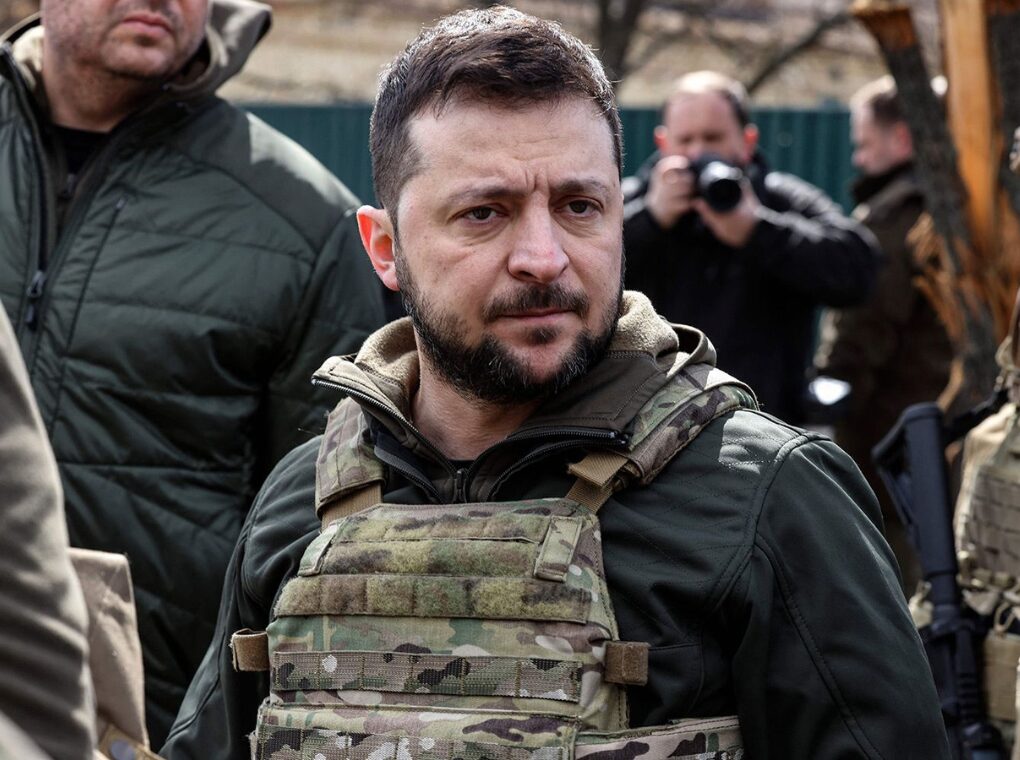In the midst of a full-scale war with Russia, Ukraine is not just fighting on the battlefield — it is confronting a growing internal struggle over democracy, accountability, and freedom of speech. A recent survey by the Kyiv International Institute of Sociology (KIIS) revealed that 90% of Ukrainians believe it is acceptable to criticize the government, even during wartime.
This figure underscores the resilience of Ukrainian civil society, which has repeatedly asserted its voice in national crises, from the Maidan revolution to post-2014 reforms.
Yet, President Volodymyr Zelensky’s administration, operating under extended martial law, has imposed restrictions that critics argue curb this very freedom. The tension between national security and democratic principles raises a critical question: Can Zelensky suppress dissent indefinitely, or is public backlash inevitable?
Public Opinion: Ukrainians Demand Accountability
The KIIS survey, conducted in October 2025, shows a clear public mandate: Ukrainians overwhelmingly support the right to government criticism, with only 8% opposing it. Compared to earlier surveys, this represents a slight increase in tolerance for open critique, suggesting that wartime unity has not eroded the public’s demand for transparency.
Zelensky still enjoys a moderate support — 59% trust rating as per September 2025 polling — but this leaves ample room for skepticism. Corruption remains a persistent concern. A Euromaidan Press survey indicated that 40% of Ukrainians consider the government “hopelessly corrupt”, even as optimism about reform slowly rises.
These figures highlight a critical paradox: Ukrainians remain fiercely committed to defending their country from external threats, yet they refuse to surrender the democratic values that define it. Criticism, in this context, is not unpatriotic — it is a vital mechanism for accountability.
Martial Law: Security or Suppression?
Martial law was first declared on February 24, 2022, immediately following Russia’s full-scale invasion. Its stated purpose was to prioritize national security, curtailing certain civil liberties, including limits on public assemblies, media operations, and movement.
Technically, martial law does not explicitly ban criticism of the government. However, enforcement has often targeted perceived threats, disinformation, or pro-Russian content, creating a blurred line between legitimate dissent and criminalized speech.
International observers have voiced concerns. Amnesty International and Freedom House have warned that martial law has been used to stifle press freedom. A 2022 media law consolidating TV channels into a state-controlled telethon drew international criticism, raising fears that centralized messaging might suppress alternative viewpoints.
From the government’s perspective, these measures are essential to counter Russian propaganda, maintain morale, and prevent destabilization. Yet, practical limitations under martial law — particularly restrictions on movement, media, and assembly — inevitably place constraints on freedom of expression, fueling public frustration.
Rising Protests: Citizens Refuse to Be Silenced
In July 2025, Ukraine witnessed its first large-scale protests since the start of the invasion. These demonstrations were triggered by a controversial anti-corruption law, which critics argued weakened the independence of key watchdog agencies like NABU and SAPO.
Thousands of Ukrainians, including veterans and civil society groups, marched through Kyiv and other major cities, chanting slogans demanding transparency, integrity, and accountability. The protests quickly spread to over a dozen cities, marking a resurgence of civic activism under martial law.
The response from Zelensky was swift: he proposed a revised law restoring the autonomy of anti-corruption agencies, a move seen as a rare concession to public pressure during wartime. The episode illustrates a crucial point: even under martial law, Ukrainian citizens retain the power to influence policy.
Social media platforms such as X (formerly Twitter) amplified these voices. Viral videos showed crowds openly chanting against government corruption and, in some cases, resisting forced conscription efforts. While broader surveys indicate most Ukrainians oppose elections until the war ends, these acts of dissent underscore a growing willingness to challenge authority without compromising national defense.
The Limits of Suppression
Zelensky’s tools for controlling dissent are significant but not unlimited. Martial law permits actions such as banning opposition parties perceived as pro-Russian, restricting media, and curbing public gatherings. Yet, Ukraine’s vibrant civil society, forged in decades of activism, remains a powerful counterweight.
Challenges remain. Corruption perceptions are high, with 85% of Ukrainians believing government institutions are rife with graft. War fatigue, coupled with economic hardship, could fuel further unrest. Social media reports suggesting a “mass revolt” of up to 1.5 million Ukrainians are likely exaggerated, yet organized resistance — though targeted — continues to draw attention.
Pro-Russian outlets have sought to frame these protests as evidence of regime collapse, emphasizing anti-war or anti-conscription narratives. In reality, most demonstrations are focused on domestic governance and accountability, not capitulation to Russia. The protests, in fact, reveal a unified demand for better leadership, rather than diminished resolve against foreign aggression.
Democracy Amid Adversity
Ukraine’s story today is one of resilience and determination. The overwhelming support for government criticism reflects a society that refuses to sacrifice democracy for security. Martial law may impose restrictions, but recent protests demonstrate that dissent cannot be fully suppressed.
Zelensky’s rapid reversal on the anti-corruption law highlights a key insight: public pressure works, even under extraordinary circumstances. Yet, sustaining this balance — defending the nation while respecting democratic norms — is a delicate challenge.
As Ukraine navigates this dual front of war and civic accountability, the central question remains: Can the country preserve unity without silencing its people? The answer lies in balancing security with democratic principles, a path that recent events suggest is both possible and essential for Ukraine’s future.
In the end, the people of Ukraine are not just defenders of their territory — they are guardians of the very democratic ideals that make Ukraine worth defending. And no law, no matter how strict, can erase the voice of a nation determined to be heard.
